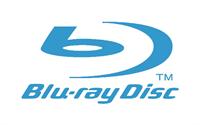Blu-ray knocks out HD DVD
Format wars have always been a part of technological progress. As companies develop new technologies to improve our lives, others devise similar but incompatible alternatives.
In the past, we’ve had wars between Cylindrical vs. Disk records, 33 1/3 RPM vs. 45 RPM records, eight–track vs. cassettes, AM vs. FM, BetaMAX vs. VHS, Mac
vs. PC
, Coke vs. Pepsi, and the end is nowhere in sight.
With the current HD DVD and Blu–ray
war, most assumed that multi–format devices
would be the answer, and users could also just choose which version they liked best. It seemed to make the most sense, since it was fairly easy to do.
But remarkably, Toshiba, one of the chief creators of HD DVD, has announced that they are pulling out of the HD DVD business. Since they were the primary makers of the drives, and the main developer of the technology, this means that Blu–ray
is officially the winner of the format war. HD DVD
partners such as Microsoft really have few options now, except to also accept Blu–ray as the winner.
Indeed, format wars are messy, and usually the one who gets hurt the most is the consumer who invested in the losing format. For the record, the BetaMax vs. VHS war lasted about a decade. VHS won that battle. BetaMax owners woke up one ugly morning to find out they had what was essentially useless hardware on their hands.
Of course, a format war can also end differently. For personal computers, the recordable DVD–R vs. DVR+R format war is still stuck at a stalemate, with both formats offered on store shelves. Multi–format DVD burners are cheap to buy and allow consumers to install a single DVD drive into their computers and choose whatever format they prefer. Many of the other format wars also ended in stalemate, and the foes would coexist for years.
To see Toshiba giving up in despair is really no surprise. Blu–ray has won so many victories in recent memory. With Warner Brothers moving to Blu–ray, and rental outlets such as Netflix and Blockbuster carrying only Blu–ray titles, HD DVD had few options. Billions of dollars (and yens) have been invested in developing HD DVD, and it’s certain that Toshiba didn’t make this decision lightly. It’s all a bit sad, really, because some considered HD DVD to be the better option with some really cool features and more open technology. But alas, by the end of the year, Blu–ray
will be the only high–definition game in town.
So what does that mean to those who have already invested in HD DVD?
For one, prices will for both the players and disks will hit rock bottom. Very soon, you will be able to add lots of titles to your HD DVD library for bargain–basement prices. And unlike some Blu–ray players, HD DVD players are also DVD compatible, and do a very good job converting regular DVD up to near–HD quality. In the coming months, HD DVD hardware and titles will find themselves in bargain bins. HD DVD owners can have their fill of great quality movies.
But by the end of this year, HD DVD will not likely be found on store shelves. The sad truth is that eventually you will have to buy a Blu–ray
player to enjoy future releases.
For those who have waited to take the plunge, this is the answer to their big question. Blu–ray is the logical purchase moving forward. Most studios not already on the Blu–ray bandwagon will now have no choice but to convert their movies to the winning format. As one of the most–hyped format wars in history, this not only ended differently, but also a lot faster than many predicted.
But in the end, this is a good thing for everyone. Now, the consumer will have a less confusing experience when purchasing high–definition movies and components, at least until the next war.

